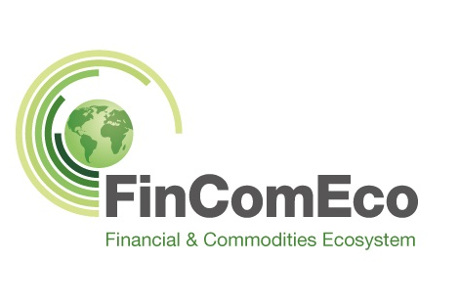By Hirander Misra, CEO of GMEX Group and Deputy Chairman of FinComEco.
The backbone of Malawi’s economy remains its agricultural output, with smallholder farmers in turn forming the vast majority of this sector’s workforce. Yet while agricultural production forms some 39% of the nation’s GDP, its smallholder farmer workforce continues to face a number of constraints. From the field to the market and from the bank to the trading floor, smallholders face key limitations to their growth. But I believe that if this vital sector is supported with the development of the right tools, technology and an effective supply chain, it will significantly improve their productivity, food security and livelihoods – for themselves, their family and their wider community as a whole.
This is the fundamental philosophy which inspired GMEX Group to develop and lead a newly formed venture called FinComEco, which aims to tackle a number of these productivity challenges from the ground up. By fostering the growth of a modern, efficient financial and commodities ecosystem, we are actively making the whole supply-to-demand chain more efficient. To me, fostering financial inclusion with social responsibility is ultimately the long-term, sustainable solution to improving food security and economic diversity in Malawi and countries throughout Sub Saharan Africa. Yet to be effective, this goal must also be achieved in collaboration with local stakeholders, development organisations, governments, research bodies and the private sector.
Old problems, innovative solutions
Over the past year, GMEX Group has been proving this concept in Malawi by working in close collaboration with Agricultural Commodity Exchange for Africa (ACE). We initially started working with ACE when we realised that many of the issues it was attempting to address with a spot agricultural commodity exchange and electronic warehouse receipts could benefit from our expertise in developing financial, trading and technology solutions. In turn, ACE shared its knowledge and deep understanding of the agricultural domain with GMEX Group.
For example, one of the biggest issues in agriculture are the inefficiencies created by what I call ‘bad middlemen’ in the system. Good intermediaries are of course necessary, particularly when you consider the sheer number of smallholder farmers as a percentage of the population in Malawi and other African countries, so there remains a need to provide an aggregated supply. But the inherent lack of transparency also results in farmers not being guaranteed a fair price – they simply don’t have the information flow to know what the right price is. Good intermediaries can also act as aggregators to collect and supply produce from the farm gate (as many smallholder farmers do not have access to transport) and provide farmers with fairer prices. This allows smallholders to increases their income, which in turn enables them to access vital inputs such as fertiliser, pesticides and seeds.
Reaping the benefits
FinComEco is already tackling many of these issues head-on, such as through our successful initiative utilising mobile technology to provide real-time market updates and pricing information from the exchange direct to the farmer’s phone. This in turn is combined with improvements in physical infrastructure including warehousing and transportation working with partners. These changes are already reaping results. In our first year of operation during 2016, ACE has seen substantial benefits delivered to smallholder farmers with an average 31% increase in income from use of warehouse receipts and better price transparency with 47,000 farmers having the ability to receive the latest market prices on their mobile phones. ACE financed nearly $10 million worth of receipts last year, but if they had adequate financing in place they could have achieved ten times that. This year, ACE and GMEX Group have launched a module which allows the trading of those receipts, either directly by farmers but also intermediaries and others, including the banks. This in turn will ultimately provide farmers with better and cheaper access to finance.
Since having proven the strength of our concept in Malawi, we can readily apply and adapt this knowledge through our FinComEco initiative wherever there is a need. We are currently engaged in discussions to deploy this initiative in 12 other African countries, with more to follow. FinComEco aims to become akin to an ‘App Store’ for agriculture in Africa and other developing regions. We are achieving this by matching exchange trading capability – including derivatives – to physical growers, while adding additional value through enabling manufacturing, support services and delivery adding to local employment. What we’re achieving in Malawi, and soon in other countries throughout Sub Sahara Africa as well, is a holistic supply-to-demand chain, with the exchange at the heart of it all. These initiatives are already having a positive impact on smallholder farmers in Malawi including empowerment of women, their families’ prospects, the growth of their communities – and ultimately improving food security in the country as a whole.
ENDS



